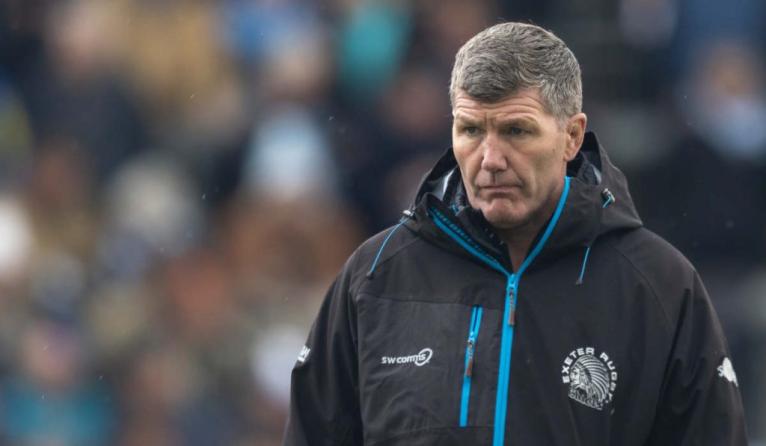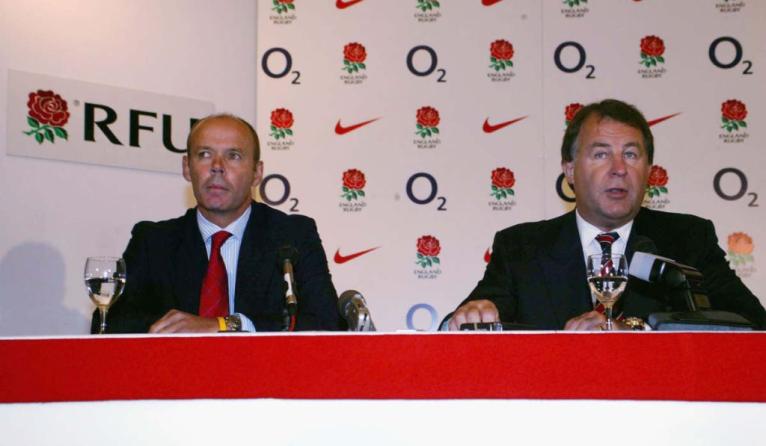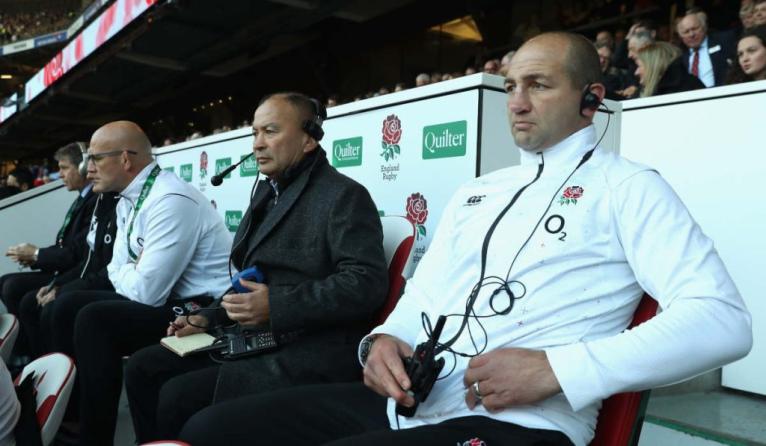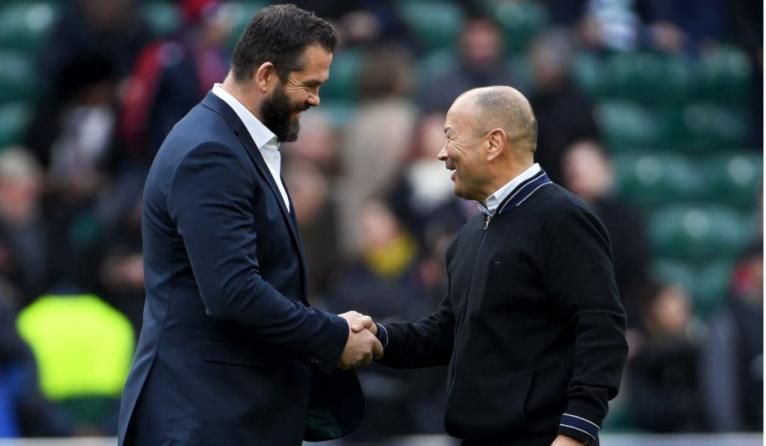Successions are always devilish, not that you should take my word for it. History’s darkest pages tell of savage, blood-soaked, squabbles as the here has tried to hand over to the hereafter; indeed, between 1066 and 1789, succession crises in Europe provoked more wars than all the others put together. Who among us can forget the Strasbourg Bishops’ War (1592-1604)? It was an absolute shitshow.
Food for thought, therefore, as the RFU scratches its head and contemplates Life After Eddie. True, the chances of fermenting an uprising in the West Country should Rob Baxter be overlooked are relatively slim but, nonetheless, this is tricky terrain. And, if we’re being honest, the RFU’s succession planning down the years hasn’t always been a thing of beauty.
England, we’re told, is now in search of an Englishman. Pressed to show his working-out on this, the RFU Chief Executive, Bill Sweeney, pointed to ‘a wealth of English coaches’ and the need to develop both them ‘and an English style of play’. All highly laudable. Except that unearthing a home-grown successor was supposedly part of Jones’ remit as Head Coach and playing an ‘English’ style has long since been one of the cornerstones of his philosophy. So how come the RFU is still looking for something it should already have in its knapsack?

Picking through the shards and splinters of England’s Rugby World Cup campaign in 2015, the RFU decided it wanted the ‘right man’ and sod the colour of his passport. Enter Eddie. Now, however, it appears we’re after someone of our own earth. It was eminently predictable. Indeed, if you study the form, the one thing you can almost guarantee about the next England Head Coach, it’s that he’ll be the antithesis of the bloke he’s replacing.
Take a deep breath and look at England in the professional era. Before his anointment by the RFU, Jack Rowell was the Godfather of Bath, more trophies than an abacus could count, vastly experienced, ruthlessly cerebral and at times almost impenetrable. Put it this way, you would not want him sitting down opposite you at the poker table. You’d be sweating billiard balls.
Clive Woodward was the right man in the right place at the right time. History is not easily gainsaid
Yet when Rowell consigned himself to the shadows in 1997, England went with a polar opposite; Clive Woodward, twenty years younger and, as a coach, well, not exactly laden with medals. An excitable, heart-on- his-sleeve, blue-sky thinker, he was almost the anti-Rowell. Jack would watch his team at Twickenham in a stiff collar and tie and – outwardly at least – look as though he were auditioning for ‘Tinker, Tailor, Soldier, Spy’; Clive, metaphorically speaking, came dressed in pom-poms.
The Woodward years weren’t seamless, on or off the pitch, but the power brokers at the RFU were spectacularly vindicated, the more so in standing foursquare behind the throne when the crown wobbled alarmingly at the 1999 World Cup. Emphatically, he was the right man in the right place at the right time. History is not easily gainsaid.

But when Woodward stomped off in 2004 in, arguably, as acrimonious a divorce as the sport has ever seen, the RFU were in a quandary; how best to harness the good vibrations of 2003 with a team whose totems were retiring and which had lost its impetus? Stick or twist? They stuck and went with Woodward’s steadfast assistant, Andy Robinson, an honest man and an outstanding technical coach but built of very different bricks to The White Knight. Alas, it did not end happily.
High and dry nine months out from a World Cup, the RFU tossed the baton backstage to Brian Ashton, a coaching virtuoso and self-styled maverick who, in a yellow wood, would instinctively take the road less travelled by. Somehow Ashton got England to the 2007 Final, a month later he was rewarded with a shiny, new contract and four months after that he was ignominiously elbowed aside after finishing second in the 2008 Six Nations. At the time, it was two stops beyond indecipherable; viewed in the context of today’s England team, make that three.
Vocal, influential elements within the RFU were restless; a heavyweight was apparently required to stir the shires and few had the heft of Martin Johnson
But vocal, influential elements within the RFU were restless; a heavyweight was apparently required to stir the shires and few had the heft of Martin Johnson, yet again, chalk to his predecessor’s cheese; a fabled, almost mythical player but in terms of coaching or managing at any level, newly-hatched. Not for the first time, the logic seemed almost fanciful and the outcome, you could argue, inevitable.
So – flip, flop, flip – it was back to the future; from a coaches’ coach (Ashton) to a players’ player (Johnson) and back again to a coaches’ coach in the shape of Stuart Lancaster; highly-respected, well-liked and fiercely ambitious. And when that didn’t work, England, again, almost violently changed tack; the emollient, low-key insider succeeded by the abrasive, high-profile outsider, which, of course, is where we are now with Fast Eddie. To put it politely, the journey hasn’t exactly been linear.

Clearly, there are mitigations here. Matching the man to the moment is rarely an exact science and when you factor in different contexts, agendas and personalities – together with the availability of the choicest coaching cuts, the terms of the small print and the weight of the purse – then furnishing a round hole with a round peg can be as much about luck as judgement. But the RFU’s approach, certainly in recent years, has looked scattergun.
The best man or the best Englishman? A heavy hitter or a discreet string puller? A veteran bedecked with campaign medals or a virgin soldier? An Insider or an Outsider? In various guises, England have had them all and, what’s more, frequently applied different standards to each. Some have been given a bountiful margin for error, others no leeway at all: some have been lavishly funded, others offered insufficient support even when they were pleading for it.
If the RFU is genuinely reluctant to cast its eye beyond the White Cliffs, then the eye-catching candidates right now are Steve Borthwick and Andy Farrell
Look, whatever’s gone before, Bill Sweeney has a chance now to draw a thick, red line under vacillations past and, by all accounts, he’s nobody’s idea of a baked apple. But already he’s narrowed his room for manoeuvre with his pitch for a local hero. If his likely lads say ‘no, thank you’ or ‘no can do’ or ‘sorry, not yet’ where does that leave him? And while many would doubtless raise a bleary pint pot to England under an Englishman, would they feel the same way if, say, Scott Robertson was willing and able?
If the RFU is genuinely reluctant to cast its eye beyond the White Cliffs, then the eye-catching candidates right now are Steve Borthwick and Andy Farrell; both have Test experience – Lions’ experience, moreover – and both are currently running slick, well-oiled machines with genuine aplomb. But is Andy Farrell perfectly happy where he is, thank you very kindly? Furthermore, having been bitten once by the RFU, would he be twice shy? And while Steve Borthwick’s credentials grow weightier by the week, does he feel he’s ready or would he prefer a little more Leicester under his belt?

The hope has to be that while the RFU are only now talking openly about the succession, they’ve been thinking openly about it for some time. Ideally, you should be sifting successors when you’re appointing the guy he’ll end up replacing, in planning speak, defining ‘mission- critical’ positions and creating ‘talent pipelines’. The former isn’t exactly rocket science; the latter requires a bit more bonce.
Bill Sweeney reckons there’s ‘a wealth’ of English coaching talent out there. Few would doubt him. But how many are ready to take on a ‘mission critical’ role with the national team? And how many are part of a ‘talent pipeline’? Does England actually have a talent pipeline? And if not, well, why not?
All we can reasonably ask of the RFU is that this latest headhunting exercise is rigorous, strategically thought through and as watertight as a kipper’s knickers
Put it this way, in the past eighteen years, New Zealand have had three Head Coaches – Henry, Hansen, Foster – almost religiously, developing and promoting from within the tent when umpteen other avenues were open to them. In the same period, the RFU has had six Head Honchos with only two – Robinson and Ashton – providing any sense of continuity and neither of them lasting more than a couple of years. It’s a sobering thought, the more so when you consider how much tin the Black and the White have banked since 2004.
Some straight-line thinking is required here. All we can reasonably ask of the RFU, given no one in the current England coaching set-up looks likely to inherit, is that this latest headhunting exercise is rigorous, strategically thought through and as watertight as a kipper’s knickers. Hopefully, Bill Sweeney not only knows which questions to ask of whom but, crucially, which answers to listen to. Certainly, given where the RFU has been, he should know which mistakes to avoid.



Cockers is already in the set up - i cant see it going to anyone else other than him or Borthwick.
Is there a better writer on rugby? No one informs or entertains more in rugby text. GS is 100% right that the succession is now messy and England’s history in this respect is a shitshow. Where to go? I’d give Graham a serious hearing for a start! Is Gatland not a viable runner?
If Robertson were available I'd grab him. Left-field choice, yes, and no international experience but he's a proven winner and man manager. Best of all, he's an innovative thinker.
And if England don't want him the Wallabies should.
A point to note: 1 good Leicester year vs 10 good Saracens years. Borthwick is great but McCall has to be an option, proof is in the pudding.